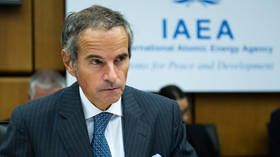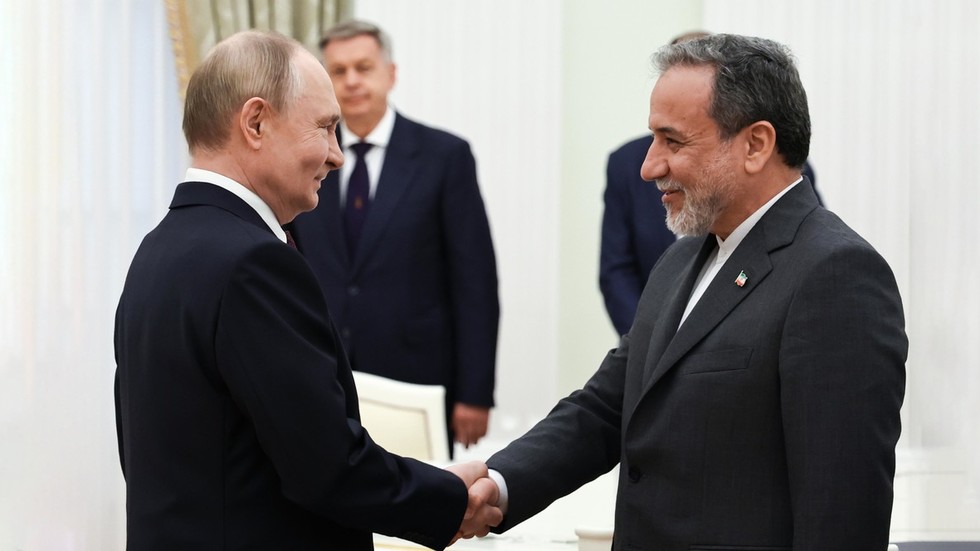Moscow’s subtle influence in the Middle East standoff reveals how diplomacy works when great powers don’t take sides
By Farhad Ibragimov – lecturer at the Faculty of Economics at RUDN University, visiting lecturer at the Institute of Social Sciences of the Russian Presidential Academy of National Economy and Public Administration
During a recent visit to Turkmenistan, Russian Foreign Minister Sergey Lavrov held talks with his counterparts and addressed students at the Institute of International Relations in Ashgabat. Among the central themes of his remarks was the escalating conflict between Iran and Israel – a confrontation that not only affects global geopolitics but also directly impacts the security dynamics of Central Asia.
For Turkmenistan – which shares over 1,100km of border with Iran and has its capital just miles from that border – the growing tension poses serious risks. Beyond humanitarian concerns, the prospect of a wider war could awaken dormant radical networks and destabilize fragile domestic balances. These risks extend beyond Turkmenistan to other southern former Soviet republics that maintain close political and military ties with Russia.
Against this backdrop, Lavrov’s call for de-escalation and regional stability carried added weight. For Moscow, Iran is not just a partner – it’s a pillar in the buffer zone securing Russia’s southern flank. Instability in Tehran could ripple across Central Asia, threatening Russia’s near-abroad.
Diplomatic signals and strategic priorities
In January of this year, Russia and Iran signed a comprehensive strategic partnership agreement, institutionalizing bilateral ties and hinting at a future formal alliance. Tellingly, just days after Israeli airstrikes targeted Tehran, Iranian Foreign Minister Abbas Araghchi flew to Moscow, met with President Vladimir Putin, and held talks with Lavrov. He later described the visit as marked by “complete mutual understanding” and emphasized Russia’s support in an interview with the news outlet Al-Araby Al-Jadeed.
Russia, along with China and Pakistan, has since pushed a new UN Security Council resolution calling for an immediate ceasefire and a pathway to political settlement. As Russian envoy Vassily Nebenzia noted, the resolution aims to stop further escalation.
Yet Moscow has been careful in its public rhetoric. At the St. Petersburg International Economic Forum, Putin avoided inflammatory language toward Israel, instead stressing the need for a diplomatic solution acceptable to all sides. This cautious tone reflects Russia’s balancing act: deepening ties with Tehran while maintaining working – and in some cases warm – relations with Israel, including in military and humanitarian channels. That dual posture allows Russia to position itself as a potential mediator, should either party seek a negotiated outcome.
Araghchi’s visit
On June 13, as Israeli airstrikes intensified, Russia quickly condemned the attacks and voiced strong concern about violations of Iranian sovereignty. Putin went further, calling US behavior in the region “unprovoked aggression.” Moscow’s message was clear: it opposed outside military interventions – full stop.
Days before Araghchi’s trip, Putin publicly revealed that Russia had offered Iran expanded cooperation on air defense systems, an offer Tehran had not pursued. Far from a rebuke, it read as a nudge: if the strategic partnership is real, Iran needs to meet Russia halfway.
Moscow remains open to closer defense collaboration, including integrating Iran’s air defense into a broader regional security framework. In retrospect, had Tehran taken up the offer earlier, it might have been better prepared to repel the strikes. For Russia, security is measured not in rhetoric, but in results – and it expects its partners to act accordingly.
Legal boundaries of the partnership
Crucially, the 2025 strategic agreement between Moscow and Tehran does not entail mutual defense obligations. It is not the Russian equivalent of NATO’s Article 5, nor does it mandate automatic military assistance. As Putin clarified, the pact reflects political trust and coordination – not a blank check for joint warfare.
In fact, the treaty explicitly forbids either side from supporting a third party that launches aggression against the other. Russia has held to that standard – refusing to engage with perceived aggressors, while voicing diplomatic solidarity with Iran and condemning destabilizing actions by the US and Israel.

In short, the architecture of the partnership is built on sovereign respect and strategic equilibrium – not entangling commitments. It centers on military-technical cooperation, coordinated diplomacy via BRICS and the SCO, and shared interest in regional stability. But it stops short of dragging Russia into wars that don’t pose a direct threat to its national security.
Behind-the-scenes diplomacy?
One development drew particular attention: just after Araghchi’s Kremlin visit, US President Donald Trump abruptly called for a ceasefire and adopted a noticeably softer tone on Iran. With the exception of a few pointed posts on Truth Social, his messaging turned markedly more measured.
Prior to his trip to Moscow, Araghchi emphasized in Istanbul that consultations with Russia were “strategic and not ceremonial.” He made clear that Tehran viewed the partnership as a platform for sensitive security coordination – not just protocol.
Whether by coincidence or not, the shift in US rhetoric suggests Moscow’s influence may have quietly shaped the trajectory of events. Russia, after all, is one of the few actors with open channels to both Tehran and Tel Aviv. It’s entirely plausible that the Kremlin served as a behind-the-scenes intermediary, securing at least a temporary pause in hostilities.
The bottom line
Russia remains a calibrated but consequential player in the Middle East. Accusations that Moscow has failed to “stand by” Iran are speculative and largely unfounded – both politically and legally. Russia offers solidarity, coordination, and leverage – not unconditional support for escalation.
And in a region where words matter as much as missiles, a subtle shift in language from Washington – timed to quiet talks in the Kremlin – may say more than any press release. Diplomacy, after all, often moves where cameras don’t.
Read the full article here
